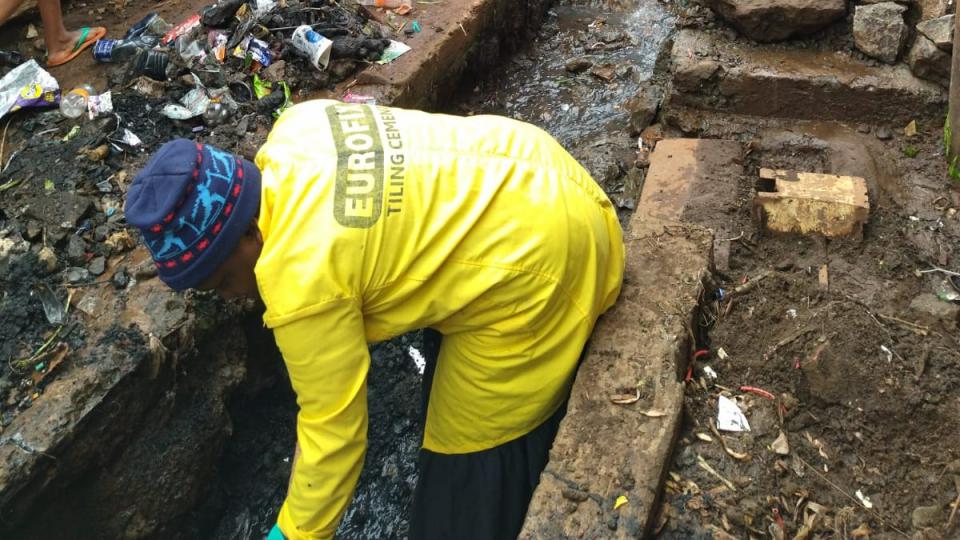
Street Clean Up
Water Pollution in Kenya occurs when pollutants are directly or indirectly released into the water without adequate treatment to remove harmful compounds. Although many water pollution laws are in force, it continues to be a serious problem affecting our water catchment areas.
Waste left on the streets can make its way into storm drains that lead directly to the rivers, causing river pollution. Most of the city's rivers are flooded with garbage, mostly plastics. Sewage sludge is based on rivers, giving the illusion that the river is non-existent. The pollution of these rivers is due to the fact that people throw garbage in "no man's land" as a waste disposal strategy.
With a population of 46 million, 41 percent of Kenyans still rely on unimproved water sources, such as ponds, shallow wells and rivers, while 59 percent of Kenyans use unimproved sanitation solutions. These challenges are especially evident in the rural areas and the urban slums. Only 9 out of 55 public water service providers in Kenya provide continuous water supply, leaving people to find their own ways of searching for appropriate solutions to these basic needs. - source - water.org
In addition to this, there are also several open sewer lines that direct their effluents into the rivers. These sewer pipes carry industrial and domestic waste. As a result, contaminants in urban rivers include plastics, feaces, detergents, disinfectants, chemical wastes, insecticides and petroleum hydrocarbons, among others. Some of these contaminants also seep into the soil and contaminate aquifers.
In a street cleanup project, volunteers of all ages work collectively to clean and pick up litter within their community streets. By participating in a street cleanup project, you can improve living conditions in your neighborhood and waterways.